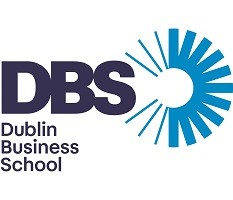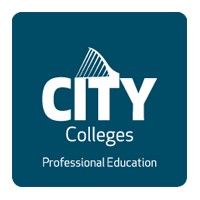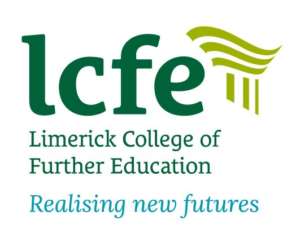Course Description
Diploma in Child Psychology
Dublin Business School (DBS)
Overview
This Diploma will be of benefit anyone with an interest in the psychology and development of the child. From those with experience in the field to anyone with experience of children from the classroom to the home. It is an introduction to the world of the child and the discipline of psychology. This course introduces the theoretical aspects of psychology and applies them to practical areas of child psychology and development.
Programme Aims and Objectives
The aim of this course is to give participants a grounding in the area of child psychology. Necessary to this is accessing the language, methods and ethics of psychology as applied to child development. Specifically the student will gain an insight into the cognitive, social and emotional development of the child. This progression will build into areas of applied child psychology.
This course covers material for students who work in the fields of childcare, special needs and the teaching fields but may not have access to a dedicated course in psychology. The course develops from general to applied issues in psychology and is also suitable for anyone with an interest child development. In completing the course the student will be informed on the current methods and practice of child psychology as well as gaining access to the language and methods of psychology as a whole.
Assessment
Assessment of this Diploma is through an individual course project. The project formulation begins from lecture five and can be developed in conjunction with the instructor. The aim of the project is to allow the student to develop and analyse an area on child psychology using the tools and skills provided by the course. It facilitates the examination of a wide range of areas while engaging interest. All topics are approved by the instructor and designed to reflect a critical analysis of the discipline of child psychology. The project is 100% of the course grade.
Course Content
- Introduction to Child Psychology: This lecture addresses historical views on the child. There is an exploration of the ideas surrounding the definition of children by culture, society and the law. Following this discussion, there is an examination of the methods, language and practice of child psychology. The lecture also addresses how psychology studies children and the sensitivities of assessing and studying this age group.
- Physical Development & Attachment: This lecture charts the physical development of the child from conception to birth and the development of the infant to 2 years of age. The lecture also introduces the concept of ‘attachment’ and describes the different attachment styles that develop between an infant and the primary caregiver.
- The Emergence of Mind: Consciousness and Language: Cognitive psychology refers to the study of how humans access information in the world, how that information is stored and finally how it is used. The linking of cognitive psychology to the study of children is one of the most important steps in child psychology. The lecture develops to examine language as one of the most important abilities for human beings, facilitating a wide range of activities including thinking and communication.
- Cognition: This lecture looks at the development of thinking (i.e. cognition) and focuses on how the internal world of the child develops. Two theories will be examined.firstly that of Piaget’s stage -theory of cognitive development in childhood and adolescence. The second framework is that of social -cognitive theory and contemporary contextualism.
- Social Development: This lecture addresses the world of the child in relation to the family and the peer group. The child’s social development is heavily influenced by parental ideas, attitudes and beliefs. The lecture will examine practical aspects of the social world linking to issues of attachment. Practical matters such as children’s experiences of separate are examined.
- Aggressive Behaviour and Bullying: An important aspect of the social world of the child is aggressive behaviour and the phenomenon of bullying. This lecture examines current psychological theories and research on aggression and bullying as well as anti-bullying interventions. It considers these behaviours from the perspectives of both the bully and the victim.
- Intelligence & Attainment: The concept of intelligence is a controversial issue in child psychology in terms child and adult performance. The issue of whether intelligence is the product of nature or nurture is contentious. This section examines these debates and then charts the link between intelligence and attainment. One of the practical areas for child psychologists is in the area of schooling and education. The lecture also introduces the role of educational psychologists and how they are involved in best practice.
- Educational Psychology and Children with Special Needs: One of the practical areas for child psychology is education. Educational Psychology is concerned with schooling, the curriculum and the school environment and identifying children with special needs or talents with reference to best practice for their education. This lecture addresses roles and functions of an educational psychologist and extends into practical issues concerning developmental delay and special needs. This section examines how special needs are defined and evaluated and outlines psychological programmes and interventions in the field.
- Child Psychology and Psychopathology: Studying child psychology contributes greatly to our understanding of problematic or maladaptive behaviour. Clinical Child Psychology is concerned with diagnosis and intervention in relation to problematic and destructive behaviour. The lecture will examine classification, diagnosis and intervention on psychopathology. It will also draw on previous learning to examine the risk and causation factors of childhood psychopathology.
- Ecology of Development: Context and Ireland: This lecture looks at psychological theories emphasising the importance of ‘context’ on development. It deconstructs the different environments and the influences of these various environments on the developing child. The place of children in Irish society is a core aspect of this lecture.
Structure
The programme is delivered through a series of lectures and uses a variety of video and multimedia tools to provide examples of childhood behaviour and development. There are occasions for group work and analysis. Interaction and debate are encouraged and expected. Current debates in child psychology provide a positive platform for this debate. The background and experience of the student in relation to children is welcome in terms of informing discussion and debate. All students will have contributions to make from their experiences with children be it as a parent, relative or from their own childhood.
Career Progression Opportunities
This programme gives the student an overview of the language and practices of psychology. Specifically it examines the area of Developmental Science with particular reference to child psychology.
The information, materials and study would provide useful information on progression within the field, detailing work and practice in child psychology. Students in the area may find the Diploma benefits them in their profession, career progression and in applications for future study. Students may use this as a first step when exploring a new career path in terms of psychology generally and the area of child psychology in particular.
Student Profile
Typically, participants on this programme have come from a wide variety of backgrounds with a range of experience. Teachers, childcare professionals, special needs assistants and even psychology graduates have completed this programme. Students with an interest in the area or parents with children of all age also access this course. This variety of student has provided a good base for discussion in previous intakes. The range of topics covered in the course coupled with the flexibility of the project provides students with access to the area in a way that best suits their needs.
Fees
The fee for this Diploma is €1,325. This is inclusive of tuition, registration, exam fees and DBS library membership. This fee must be paid in full before the course begins.
Visit Us
Open days are a great way to help you make your decision about your course of interest. The open day will give you the opportunity to receive one on one advice and direction from leading academics in your chosen subject area, meet current students and also have your questions answered on entry requirements, student support and the admissions process. Find out when our next Open Event is taking place. The Admissions Office is located in our Aungier Street campus and you are welcome to visit the college to speak with a member of our admissions team from Monday to Fridays, 8:45am – 5:15pm. Alternatively, you can contact us by email.
| College Name | Dublin Business School (DBS) |
| Course Category | Health Care, Psychology Courses |
| Course Type | Classroom Based |
| Course Qualification | Diploma |
| Course Location | Dublin, Ireland |
| Location Postcode | Dublin 2 |
| Delivery mode | Classroom based |
| Course Fee | €1,325 |
| Course Duration | 10 Weeks |
| Course Times | 1 evening per week, 6.15-9.30pm |
| Title of Awarding | Diploma in Child Psychology |







Comments, Questions & Reviews